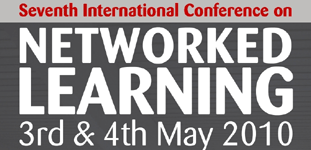

Individual versus collaborative learning in digital environments: the effects on the comprehension of scientific texts in first year university students
Elvis Mazzoni
Alma Mater Studiorum - University of Bologna, Cesena (FC), Italy
University of Neuchâtel, Neuchâtel (NE), Switzerland
Pietro Gaffuri, Michele Gasperi
ALMA MATER STUDIORUM - University of Bologna, Cesena (FC), Italy
Abstract
This contribution proposes an empirical study in which collaborative learning is compared to individual learning on a digital environment such as the web platform Moodle. The context in which this work takes place is the Faculty of Psychology of the University of Bologna. In particular, the research sample is characterized by 263 first year students that participate to the course of "Introduction to Scientific Literature and Language". Students spontaneously have chosen to participate to the course with group A (lectures on Monday) or group B (lectures on Tuesday). The course is structured in blended-learning format, i.e. three in presence lessons and three online activities to be accomplished between two consecutive lectures. For completing the online activities, students were randomly associated to two different online conditions, i.e. collaborative learning and individual learning, independently from group A or B they belong to.
During the 1st and the 3rd lecture students filled in a test of comprehension of the same scientific text while between two lessons they accomplished tasks connected to scientific production (writing an abstract for a scientific paper, blind reviews of two other abstracts, and completing the abstract after receiving the reviewers' comments). By means of Social Network Analysis, at the present moment we have complete the elaboration of the SNA indices for constructing the interpersonal skills profiles both for individual students and for groups. The next step is to complete the evaluation of the two tests of comprehension of the same scientific text for having a comparison between a test and a re-test. After this phase, we will proceed by testing the following hypothesis:
1) In general, an increasing on the quality of the comprehension from the 1st to the 2nd presentation of the text A due to the online activities proposed between the two presentations.
2) A more evident improvement on those students that have been associated to the Collaborative Learning (CL) condition with respect to those of the Individual Learning (IL) condition;
3) Further, a more evident improvement on groups Low Centrality-High Density (LC-HD) than groups High Centrality-Low Density (HC-LD).
Ongoing results show that the first and the third hypothesis are confirmed, while the second hypothesis is not confirmed. One possible explanation about the second hypothesis could reside on the typology of groups, that are constructed by the researchers and not spontaneously created by students on the basis of their pre-existent acquaintances, but further studies are necessary for having a more clear comprehension of this result.
| About NLC | Welcome Messages| Acknowledgwments | Conference Proceedings| Keynote Speakers| Index of Presenting Authors| Contact |